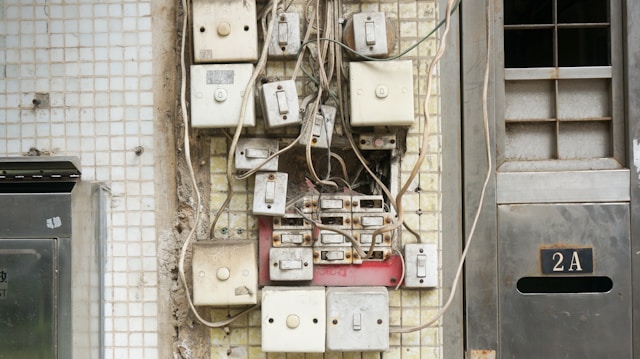Electricity powers our lives, from lighting and heating to running everyday appliances. But while it’s essential, it can also be dangerous if not handled properly. Thousands of house fires, injuries, and even fatalities occur every year due to electrical hazards at home. The good news is that most of these accidents are preventable with proper precautions. Understanding the basics of electrical safety at home is crucial for protecting your family and property.
Understanding Electrical Hazards
Before learning how to prevent accidents, it’s important to recognize common electrical hazards at home. Overloaded circuits are one of the biggest risks, especially when multiple high-wattage appliances are plugged into a single outlet or extension cord. Faulty or damaged wiring, often hidden behind walls, is another danger that can lead to electrical fires. Water near outlets or appliances poses a severe shock hazard, while improper use of extension cords or DIY electrical fixes can cause significant risks. By identifying these dangers, homeowners can take proactive steps to improve home electrical safety.
Basic Electrical Safety Rules for Every Home
A few simple rules can greatly reduce the risk of accidents. Never overload outlets or power strips, as this increases the chances of overheating and fire. Always keep electrical devices away from water, particularly in kitchens and bathrooms. For homes with children, installing childproof outlet covers is an effective way to prevent accidental shocks. Make it a habit to unplug appliances when not in use, which also saves energy. Regularly inspect cords, plugs, and outlets for damage if you see fraying wires, burn marks, or loose connections, replace or repair them immediately. Following these basic electrical safety rules creates a safer home environment.
Preventing Electrical Fires
Electrical fires are among the most serious risks associated with electricity. To prevent them, start by installing smoke detectors in every room and testing them regularly. Replace outdated or worn-out wiring, especially in older homes, to reduce the risk of sparks. Use surge protectors for sensitive electronics like computers and televisions to safeguard against power surges. One of the most important rules is to avoid DIY electrical work unless you are trained; incorrect repairs can cause more harm than good. A licensed electrician should always handle major installations or rewiring.
Safe Use of Appliances and Devices
Everyday appliances can also become hazards if not used correctly. In the kitchen, never operate appliances with wet hands or near water. Heaters, irons, and other high-heat devices should be placed on stable surfaces and kept away from flammable materials. Electronics should be used according to the manufacturer’s instructions, and cords should not be bent or pinched under furniture. Simple precautions in daily use help maintain electrical safety at home.
Electrical Safety for Families with Children
Children are naturally curious, which makes electrical hazards at home particularly dangerous for families. Childproofing outlets with safety covers prevents little fingers from getting hurt. Cords should be tucked away and kept out of reach to avoid tripping or pulling hazards. Parents should also teach children not to play with electrical appliances, plugs, or switches. A simple but effective rule is never touching electrical items with wet hands. By creating safe habits early, families can prevent many common accidents.
Electrical Safety Checklist for Homeowners
Here’s a quick electrical safety checklist you can use at home:
-
Do not overload outlets or extension cords.
-
Keep appliances away from water.
-
Unplug devices when not in use.
-
Replace damaged cords and plugs immediately.
-
Install childproof outlet covers if you have kids.
-
Test smoke detectors regularly.
-
Use surge protectors for sensitive electronics.
-
Call an electrician if you notice flickering lights or unusual burning smells.
Following this checklist can greatly reduce the risks of shocks, fires, and other electrical hazards at home.
When to Call a Professional Electrician
Some electrical issues should never be ignored. If your lights frequently flicker, breakers trip often, or you notice a burning smell near outlets, it’s time to call a professional electrician. Buzzing sounds, warm outlets, or sparks are also warning signs. Professional inspections ensure your electrical system is safe and up to code. Trying to fix these problems without the right training can be dangerous and costly in the long run.
Conclusion
Practicing electrical safety at home is not complicated, but it does require awareness and consistency. By understanding common electrical hazards, following safety rules, and knowing when to seek professional help, homeowners can protect their families and prevent accidents. Simple steps like unplugging appliances, avoiding overloaded outlets, and using childproof covers go a long way toward keeping your home safe. With a proactive approach to home electrical safety, you can enjoy the benefits of electricity without unnecessary risks.

